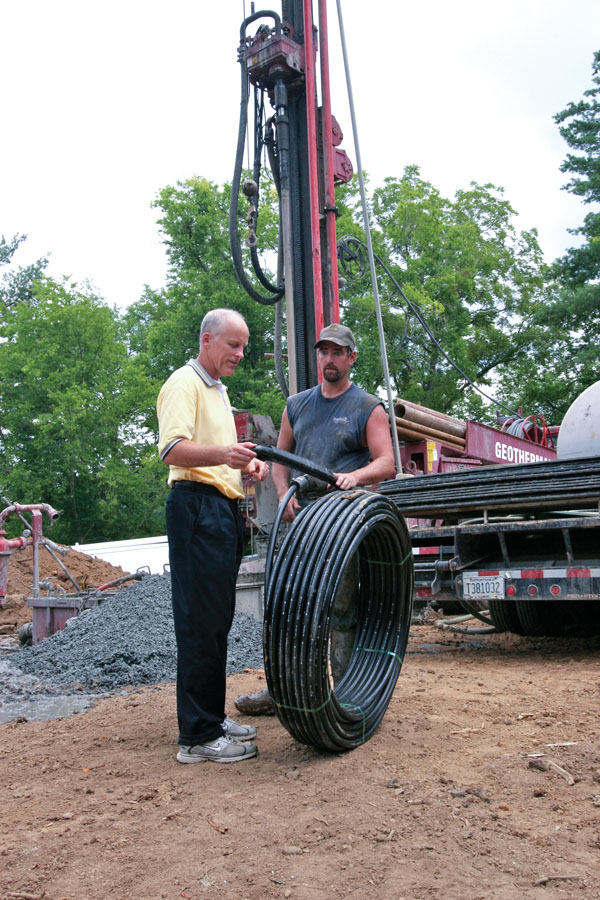Every homeowner that uses a septic system for wastewater treatment should clean their septic tank every one to three years. This type of maintenance must be done to remove scum and sludge that builds up in the tank. If this material builds up too much, it will plug up the drainage field lines, creating a very expensive problem.
Cleaning of the tank must be done by a licensed and bonded septic tank professional. All accumulated material, liquid and solid should be removed. This is accomplished by pumping and flushing between the tank and the pumping truck. Cleaning should take place through the manhole opening in the tank. If other openings are used, the tank will likely not be cleaned properly, and may damage baffles in the tank that prevents solids from entering the drain field. Ask to have baffles in the tank inspected to make sure they are not damaged.
When finished, the only thing remaining in the tank should be a black film on the walls and a very small amount of liquid. Bacteria in the film and liquid will aid in restarting the decomposition process. It is not necessary to add starters.
Septic systems should be cleaned more frequently in certain situations. Garbage disposals add a tremendous amount of solids into the system. Heavy water usage, such as having a water softener, doing more than 3 loads of laundry each day, or having additional people living in the house are all cases making frequent tank cleaning essential.
The drainfield is the area where wastewater from the tank is allowed to reenter the soil. Several drainage lines let the water percolate into the soil, where bacteria finish cleaning the water.
Drainage lines can become plugged when solids are carried in along with wastewater. Overloading the tank by heavy water usage will not allow enough time for solids and scum to separate from water in the tank. Infrequent cleaning will also plug drainage lines, by allowing scum or solids to get past baffles in the tank.
Research has not shown the use of septic systems cleaners or additives to be effective, and can sometimes make things worse, as in the case of degreasers.
In recent years, aerobic wastewater systems have been installed in some home sites. These systems, while more efficient at decomposing solids, still must be periodically cleaned. No system can decompose all material that comes into the tank.
Regular tank cleaning, conservative water use, and limiting the amount of undesirable materials going into the system can prevent many of the septic system failures that occur. It’s the choice of doing a little now or paying a lot in the near future.
For more information on septic system maintenance, visit the University of Illinois Extension website called Septic Systems in Illinois. It includes information on types of systems, things to consider when buying or selling a house, and special information on surface discharging systems. The site can be found at http://web.extension.illinois.edu/septicsystems/.







